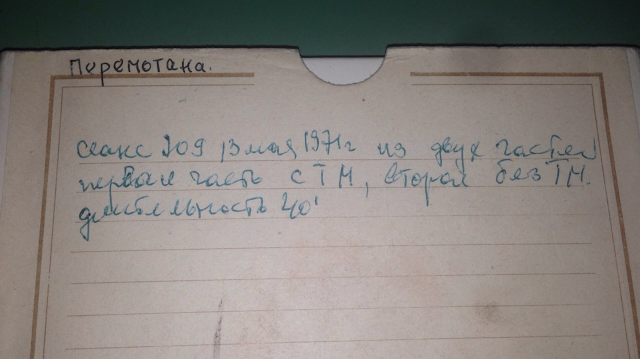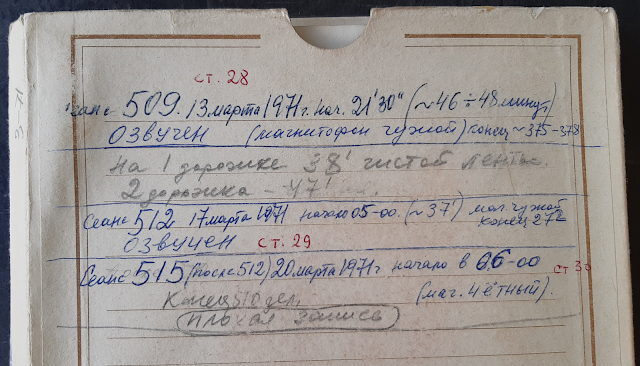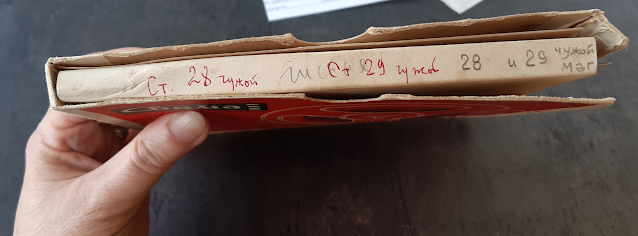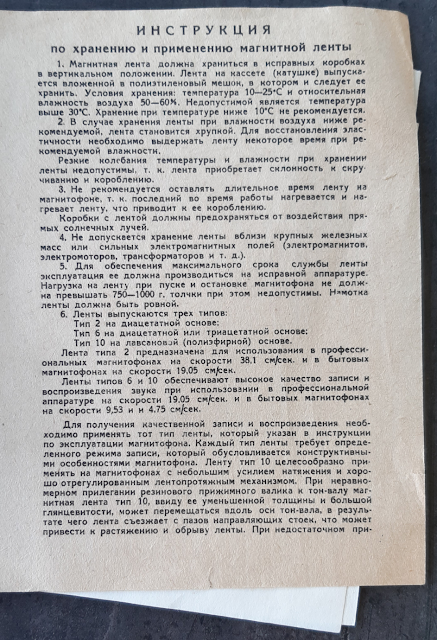Published initially on 2021/08/21. Latest update: 2021/08/27 19:10.
A trove of lost Lunokhod data may have been found.
Between 1970 and 1973, the Soviet space program achieved an amazing feat: landing and driving the first remote-controlled roving robots on the Moon. These two vehicles were called Lunokhod-1 and -2, and they gathered invaluable scientific data as well as images of the surface of the Moon during their unprecedented, and still unrivaled, total of 52 kilometers of remotely controlled lunar exploration.
These data and images have been published only partially and with great quality losses due to analog duplication, and a large fraction is thought to be lost.
It has now emerged that a set of tapes, believed to contain these recordings and reportedly salvaged from the Pulkovo observatory, still exists. It is in private hands and I am bound by journalistic confidentiality to protect the owner’s identity for the time being. More details will be made available as soon as I have the owner’s permission.
Expert help is now needed to decode the images and data stored on these tapes in analog form.
Are these tapes authentic?
A sample of these tapes (the one published below) has been made available to
selected space historians and so far they have expressed no doubts as to the
authenticity of the contents. It is unclear whether these are the original
tapes or copies of the originals. Further investigation is needed to establish
the full history of these recordings and of their media. With the owner’s
permission, I am publishing here samples and images to allow anyone to assess
the material.
What’s on the tapes?
The owner has not disclosed the full list of contents of the tapes to me so far. I have personally seen the printed material that accompanies one of the tapes and listened to a recording of a sample of the contents. This material has been examined by the above cited experts and appears to be a two-track audio tape.
The two separate tracks contain an analog audio recording of someone who, in a rather flat Russian voice, describes the topic of the data on one channel. The sample I have been given is presented below in full and refers to telemetry received in March 1971 during the rover’s fifth drive (March 9-20, covering 2,004 meters).
The voice is followed, on the other channel, by what I can only describe as modem-like or fax-like squeals and tones. Anyone familiar with cassette tape loading on a C64 or Spectrum will recognize the kind of sound. Then the voice resumes and is followed by more squeals and tones. These sounds presumably encode the slow-scan video images taken by the onboard cameras and the scientific data.
The sample is a selection of one of the tapes. The voice is recorded in reverse on the original tape and has been un-reversed in this sample after the first few seconds.
This is a transcript of this audio sample, kindly provided by Katya Pavlushchenko; The English translation is a blend of suggestions and annotations from Russian speakers and experts. Please let me know how to fix any mistakes (thank you, Vitaly Fedrushkov, Alexander J, Vladislav Kobychev and Slava Gilevich):
00:00-00:53 Sped-up, reversed human voice alternated with tones. The reversed voice says:
0:32-0:33 — Второй семь минут (Second seven minutes)
0:21-0:22 — Третий семь минут (Third seven minutes)
0:10-0:11 — Четвёртый семь минут (Fourth seven minutes)
0:03-0:04 — Пятый семь минут (Fifth seven minutes)
0:00-0:01 — Включение телеметрии (Turning on telemetry)00:53 Продолжение пятьсот восьмого сеанса. 12 марта 1971 года. Начало в 20:00. Без РТ, без телеметрии, с панорамы, без СКУ, но кормой от солнца. Запись с первой стойки ФТ. (Continuation of the 508th session. March 12, 1971. Beginning at 20:00. Without RT, without telemetry, with panorama, without SKU [Service control channel], but stern [rear] from the sun. Recording from the first rack of FT equipment [method of panoramic television transmission of the surface of the Moon]
01:21 Выключена телеметрия. (Telemetry is disabled)
01:44 Включена рифма. (Turning on RIFMA [X-ray isotope fluorescence analysis method])
06:15 Первые четыре минуты (First four minutes)
Contributor Alexander J suggests that the recording may have been made on a 4-track monophonic tape recorder and that the first 40 seconds are recorded on the wrong track, so playback occurs in reverse.
Contributor Vitaly Fedrushkov suggests that a similar data set may exist somewhere in Russian scientific archives, in decoded and raw forms, and specifically references this document noting that it describes “‘25 on film, 27 printed photos and one CD-R' where CD-R may be result of tapes conversion and retirement”. I am trying to confirm this.
These are photographs of one of the tapes, mostly taken by me, and scans of part of the annotations that come with the tapes.
According to contributor Alexander Varakosov, the scan shown above is an annotation of a communication session, probably dated November 20, 1970 (the third day on the surface). The time is indicated in hours minutes’ seconds” format, zeros omitted. In the left bottom corner, ”B-19” is circled and accompanied by the words “first command sent [or submitted]”. The circled text at the top of the second column means “polarization reversal”. B-19, D-19 and other words may indicate operating modes, such as telemetry and so forth.
According to contributor Vsevolod Putilov, the text on the rear of the tape box in the photograph shown above says (annotations are in brackets):
Page 28 [in red; st usually stands for stranica, page]
Session 509. 13 March 1971. Beginning at 21:30 (approximately 46-48 minutes). Voiced (tape recorder of someone else) ending ~375-378 [seconds?]
[in pencil] On track 1 38 minutes of clear tape. 2 track - 47 minutes [illegible]
Session 512, 17 March 1971, beginning at 05:00 (~37 minutes) tape recorder of someone else, ending 272. Voiced.
Page 29 [in red]
Session 515 (after 512) 20 March 1971, Beginning 06-00
Page 30 [in red]
Tape recorder Chotniy (even) [Vsevolod notes: “I didn't find any model of tape recorder Chotniy, maybe it was name of a person, or special equipment, not sure about it.” Vitaly notes that “even” has the meaning of “even-numbered", as in “odd and even”. His guess here is that all units (racks, tape recorders, etc) were numbered sequentially, with even units assigned to one instance and odd units to another. This may also suggest that two sets of original records were available to the author of the note].
[in pencil] End of STO зел. [zel, del? maybe abbreviation, maybe green color, maybe it stands for STO division); bad recording MF [medium frequency, SV usually stands for medium radio band)].
MAJOR UPDATE: additional recording available soon
2021/08/27: I have been given a digital transfer of another tape of the set, which lasts 28 minutes. I will make it available to selected researchers shortly. I am also contacting Russian space authorities to establish the authenticity of these recordings and whether other copies of these tapes exist.
How can you help?
The format of the video images and of the science data is currently unknown and it is unclear what the tapes actually contain. This provides four main avenues of investigation:
- translating the Russian text shown in the photographs;
- gathering information on how these tapes were recorded and how the data was encoded;
- transcribing and translating what the taped voice says;
- physically extracting the data and images from the tapes and presenting them in usable form.
If you have experience in these fields and are willing to help, please contact
me at paolo.attivissimo@gmail.com. Thank you to all the people who have
already responded: I am hoping that more material will be released by the
owner of these tapes. This is the next step.
In the meantime, I have compiled a list of potentially useful technical references:
- Soviet report on Lunokhod-2 (1973, via Roscosmos, in Russian)
-
The radio engineering complex of automatic stations Luna-17 and
Lunokhod-1 (Object E-8 No. 203)
(August 1972, Scientific Research Institute of Instrument Design, signed by
L. Gusev, director of the Institute, and M. Ryazansky, general designer
(1972, in Russian), describing the onboard and ground telemetry systems
- Lunokhod-1 Soviet Lunar Surface Vehicle (1971, RAND/ARPA, in English); page 4 specifically discusses telemetry data types
-
Lunokhod-1 data
available at NASA (in English)
- Lunokhod-2 - A Retrospective Glance after 30 Years (Bogatchev and Koutcherenko)
-
Lunokhod-1
and
Lunokhod-2
at the
Department of Lunar and Planetary Research, Moscow University (in Russian)
- Lunokhod images and technical description of image formatting and transmission modes
-
Russian information
on “remote control lunokhods and planetrovers”
-
Soviet space cameras
by Don P. Mitchell (in English)
Articles in Russian on these tapes have been published at
Habr.com and
Naked-Science.ru.
Full disclosure: I am not financially involved in this matter in any way. I
am publishing this article and doing research on the subject purely out of
historical interest.









Nessun commento:
Posta un commento
Se vuoi commentare tramite Disqus (consigliato), vai alla versione per schermi grandi. I commenti immessi qui potrebbero non comparire su Disqus.
Nota. Solo i membri di questo blog possono postare un commento.